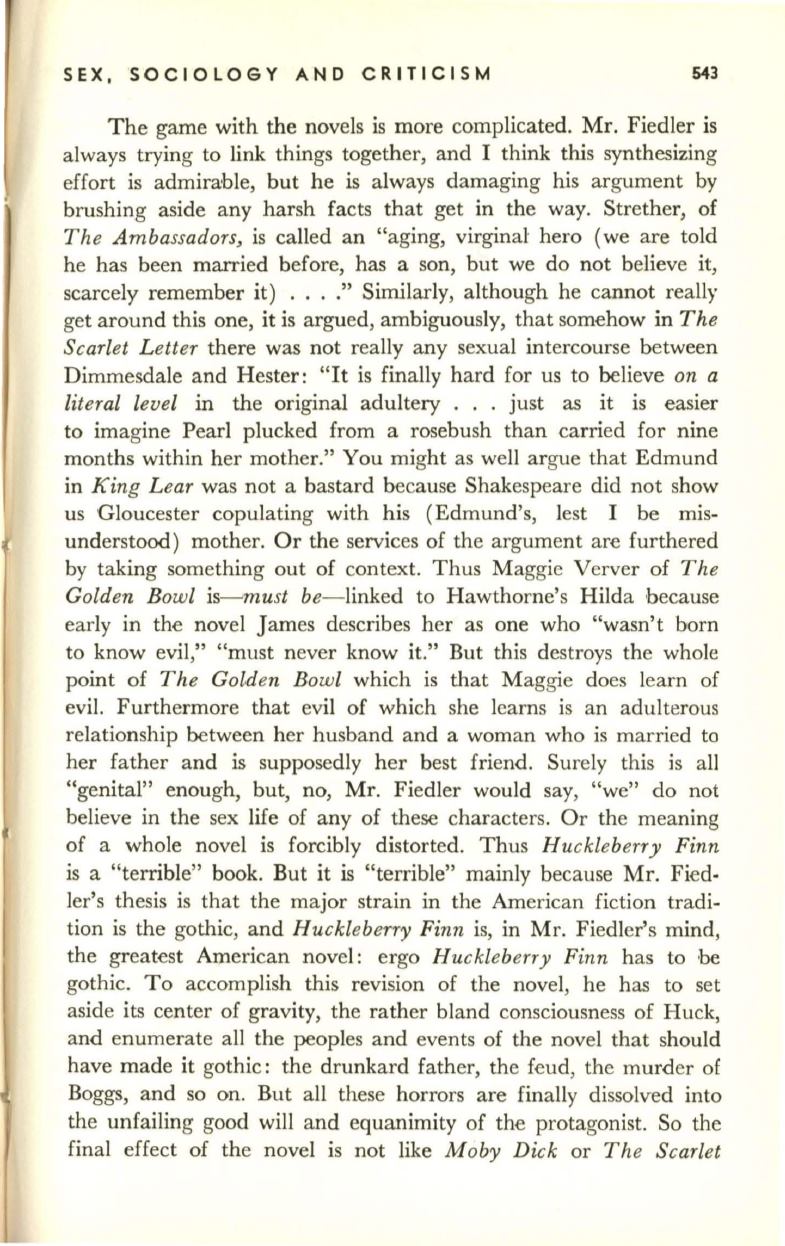
SEX, SOCIOLOGY AND CRITICISM
543
The game with the novels is more complicated. Mr. Fiedler is
always trying to link things together, and I think this synthesizing
effort is admirable, but he is always damaging his argument by
brushing aside any harsh facts that get in the way. Strether, of
The Ambassadors,
is called an "aging, virginal hero (we are told
he has been married before, has a son, but we do not believe it,
scarcely remember it) ...." Similarly, although he cannot really
get around this one, it is argued, ambiguously, that somehow in
The
Scarlet Letter
there was not really any sexual intercourse between
Dirnmesdale and Hester:
"It
is finally hard for us to believe
on a
literal level
in
the original adultery . . . just as it is easier
to imagine Pearl plucked from a rosebush than carried for nine
months within her mother." You might as well argue that Edmund
in
King Lear
was not a bastard because Shakespeare did not show
us Gloucester copulating with his (Edmund's, lest I be mis–
understood) mother. Or the services of the argument are furthered
by taking something out of context. Thus Maggie Verver of
The
Golden Bowl is---must be-linked
to Hawthorne's Hilda because
early in the novel James describes her as one who "wasn't born
to know evil," "must never know it." But this destroys the whole
point of
The Golden Bowl
which is that Maggie does learn of
evil. Furthermore that evil of which she learns is an adulterous
relationship between her husband and a woman who is married to
her father and is supposedly her best friend. Surely this is all
"genital" enough, but, no, Mr. Fiedler would say, "we" do not
believe in the sex life of any of these characters. Or the meaning
of a whole novel is forcibly distorted. Thus
Huckleberry Finn
is a "terrible" book. But it is "terrible" mainly because Mr. Fied–
ler's thesis is that the major strain in the American fiction tradi–
tion is the gothic, and
Huckleberry Finn
is, in Mr. Fiedler's mind,
the greatest American novel: ergo
Huckleberry Finn
has to be
gothic. To accomplish this revision of the novel, he has to set
aside its center of gravity, the rather bland consciousness of Huck,
and enumerate all the peoples and events of the novel that should
have made it gothic: the drunkard father, the feud, the murder of
Boggs, and so on. But all these horrors are finally dissolved into
the unfailing good will and equanimity of the protagonist. So the
final effect of the novel is not like
Moby Dick
or
The Scarlet


